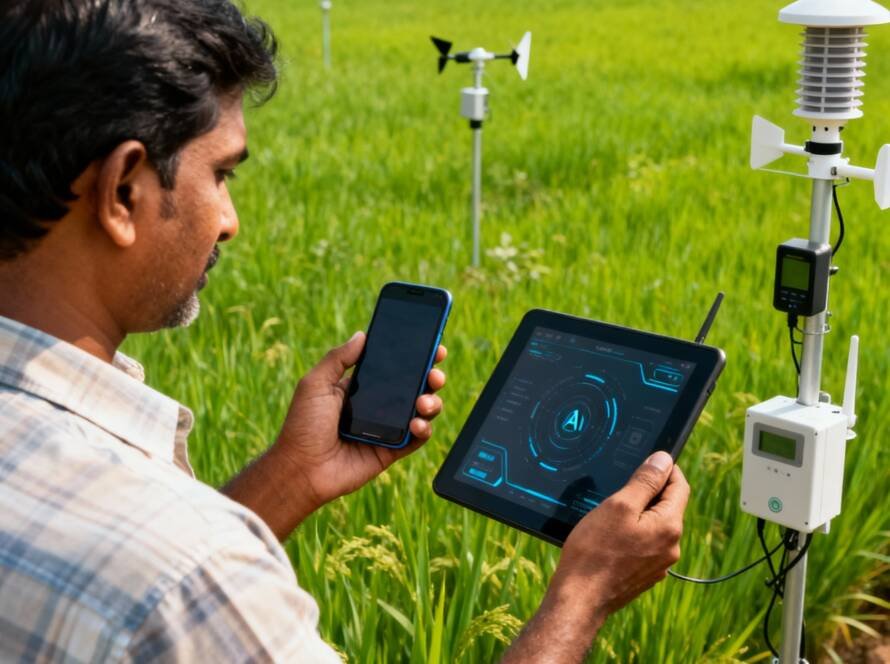Wheat is a staple crop across India, but it is vulnerable to fungal, bacterial, viral, and nematode diseases that can significantly reduce yield and quality. Implementing Integrated Crop Disease Management (ICDM) helps farmers prevent, detect, and manage these threats sustainably, ensuring profitable and resilient wheat production.
1. Common Wheat Diseases
- Rusts (Leaf, Stem, and Stripe Rust) – Orange-brown pustules on leaves and stems; reduces grain yield.
- Powdery Mildew – White powdery fungal growth on leaves and stems.
- Karnal Bunt – Fungal infection affecting wheat grains, causing discoloration and poor quality.
- Smut Diseases (Loose and Covered Smut) – Black spore masses replace grains, affecting productivity.
- Wheat Blast – Greyish lesions on spikes and stems leading to reduced grain set.
2. Causes of Wheat Diseases
- High Humidity and Rainfall – Promotes fungal growth.
- Susceptible Varieties – Lack of resistance to common pathogens.
- Contaminated Seeds – Introduces pathogens to healthy fields.
- Poor Crop Rotation – Continuous wheat cultivation increases soil-borne diseases.
- Insect Vectors – Aphids and other insects spread viral infections.
3. ICDM Practices for Wheat
- Cultural Practices
- Use disease-free certified seeds.
- Maintain proper row spacing for airflow.
- Remove infected plants and crop debris promptly.
- Rotate crops to minimize pathogen buildup.
- Biological Control
- Apply Trichoderma, Pseudomonas, or other bio-fungicides to manage fungal infections.
- Resistant Varieties
- Plant rust- and smut-resistant wheat cultivars suitable for your region.
- Water and Nutrient Management
- Avoid waterlogging; ensure balanced fertilization to strengthen plant immunity.
- Chemical Management
- Use fungicides and bactericides selectively based on disease severity and expert recommendations.
- Vector Control
- Monitor and manage aphids or other insects to prevent viral disease spread.
4. Benefits of ICDM in Wheat
- Minimized losses from fungal, bacterial, viral, and nematode diseases.
- Improved grain quality and yield.
- Reduced chemical use and increased sustainability.
- Early detection prevents large-scale outbreaks.
- Market-ready produce ensures better profitability.
5. Krikso India Support for Wheat Farmers
- Certified Disease-Free Wheat Seeds – Ensures healthy crop establishment.
- Organic Bio-Fungicides and Pest Control Solutions – Effective against rusts, mildews, and smut diseases.
- Technical Advisory Services – Guidance on ICDM practices for wheat, disease monitoring, and management.
- Market Linkages – Helping farmers sell high-quality, disease-free wheat for better returns.



